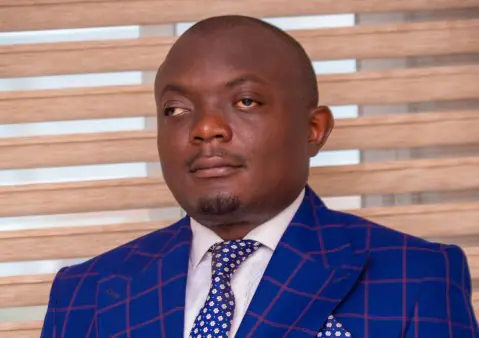Cameroonian lawyer, Legenju Vitalise, has suggested that the ongoing power struggle between the Cameroon Football Federation (Fecafoot) and the Ministry of Sports and Physical Education (Minsep) reveals a deeper issue of a “power vacuum” within the country’s leadership.
He made these remarks on Monday, following the prolonged dispute over who should lead the men’s national football team, the Indomitable Lions.
As Cameroon gears up for its crucial playoff qualification match against Cape Verde for the 2026 World Cup, the national team remains in disarray.
The conflict, which has lasted for close to two months, revolves around the appointment of the team’s technical staff, with both Fecafoot and Minsep asserting their authority based on purported “high instructions” from the Head of State.
The crisis initially seemed to reach a resolution when Samuel Eto’o, President of FECAFOOT, issued an apology to Belgian coach Marc Brys and reinstated him as the head coach.
However, the situation quickly deteriorated, with both institutions continuing to clash over the management of the team.
The dispute escalated dramatically when two separate teams arrived at the Hilton Hotel, each claiming legitimacy based on the same high-level directives.
This chaotic scene has only intensified concerns about the effectiveness and clarity of leadership emanating from the Unity Palace.
Barrister Vitalise Legenju, reflecting on the unfolding events, expressed skepticism about the current state of governance in Cameroon.
“With conflicting authority and assumed delegation and no clear intervention from the Unity Palace, I am now inclined to believe those who suggest that there is no captain steering this ship,” Legenju stated.
“It appears that the ‘high instructions of the Head of State’ may simply be the creation of any official holding such a document, indicating a suspected power vacuum at the Unity Palace.”
Legenju’s comments highlight a growing perception of disarray at the highest levels of government.
The absence of decisive intervention from President Paul Biya or other top officials has left the public and stakeholders questioning the strength and coherence of national leadership.
The implications of this crisis extend beyond the realm of sports.
As Cameroon prepares for its World Cup qualifier, the lack of unity and clear direction within the national football administration could undermine the team’s performance on the international stage. Additionally, the broader message sent to the public is one of instability and uncertainty within the government’s operational hierarchy.
This perceived power vacuum is particularly concerning in light of other national challenges.
Cameroon is still grappling with the protracted Anglophone Crisis, which has seen widespread violence and displacement in the North West and South West regions since 2016.
The government’s inability to effectively address this issue, coupled with the current sports administration turmoil, suggests systemic issues in governance and crisis management.
Observers and analysts are calling for urgent and transparent interventions to restore order and confidence in Cameroon’s leadership.
The resolution of the FECAFOOT-Minsep conflict is seen as a critical test of the government’s capacity to manage internal disputes and maintain stability in critical sectors.



